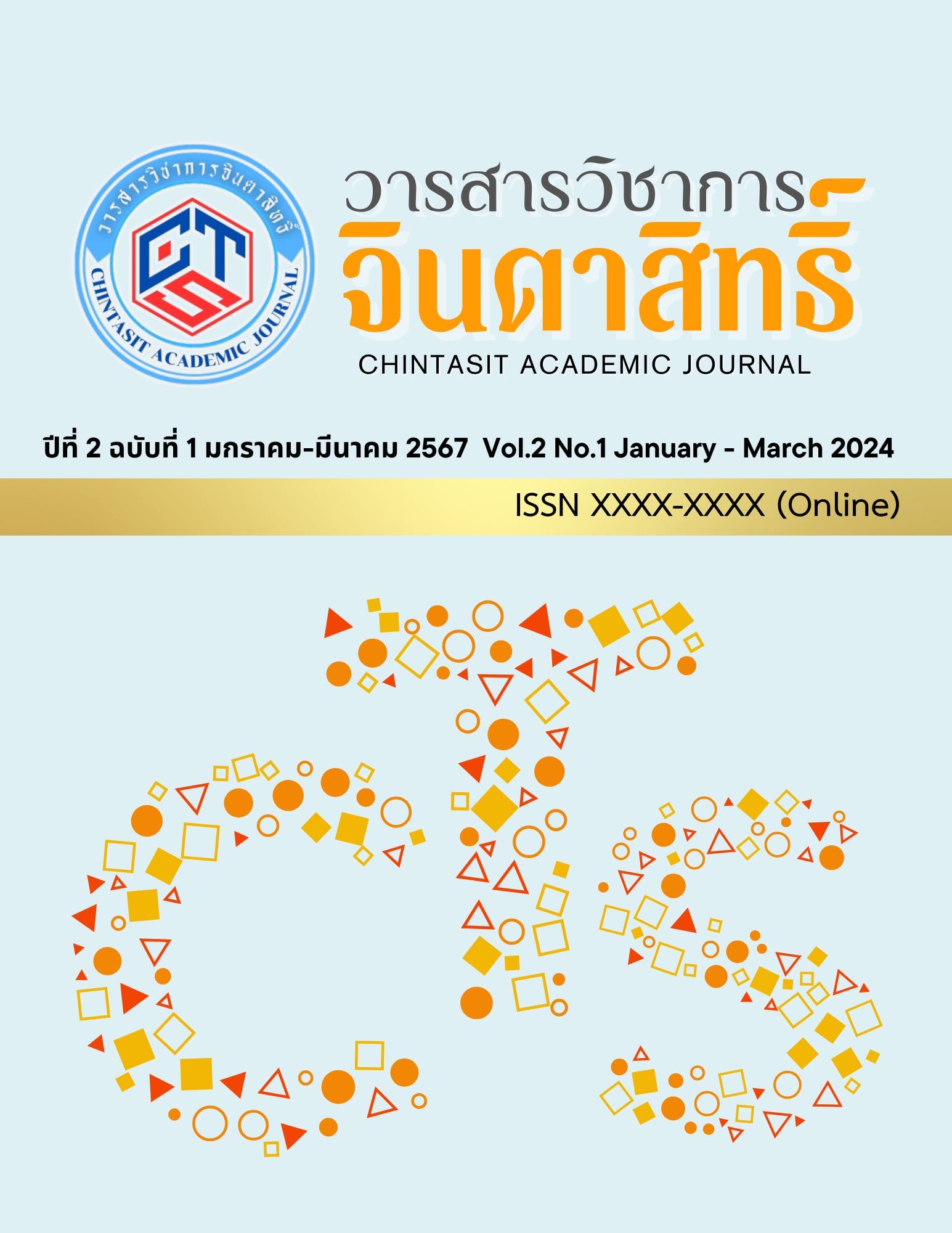School Administrator Competencies in the 21st Century: A Case Study of the Upper Northeastern Region of Thailand
Main Article Content
Abstract
This research aimed to 1) study the core competencies of school administrators in the 21st century that align with the context of the upper northeastern region of Thailand, 2) assess the current competency levels of school administrators, and 3) propose guidelines for developing school administrators' competencies. The study employed a mixed-methods approach, collecting data from 334 school administrators through questionnaires and conducting in-depth interviews with 30 administrators and experts. The findings revealed six core competencies: 1) academic and change leadership, 2) strategic management and innovation, 3) networking and community collaboration, 4) teacher and educational personnel development, 5) educational resource and technology management, and 6) risk management and crisis response. Administrators scored highest in networking and community collaboration (mean 4.12) and lowest in risk management and crisis response (mean 3.38). Key development guidelines include enhancing digital technology skills, strengthening risk management capabilities, and developing academic leadership within the local context. These findings can be applied to develop training curricula and formulate policies for school administrator development tailored to the context of the upper northeastern region.
Article Details

This work is licensed under a Creative Commons Attribution-NonCommercial-NoDerivatives 4.0 International License.
Chintasit Academic Journal is licensed under a Creative Commons Attribution-NonCommercial-NoDerivatives 4.0 International (CC BY-NC-ND 4.0) licence, unless otherwise stated. Please read our Policies page for more information on Open Access copyright and permissions.
References
กระทรวงศึกษาธิการ. (2562). แผนการศึกษาแห่งชาติ พ.ศ. 2560-2579. กรุงเทพฯ: สำนักงานเลขาธิการสภาการศึกษา.
เกรียงศักดิ์ เจริญวงศ์ศักดิ์. (2022). สมรรถนะผู้บริหารสถานศึกษาในยุคดิจิทัล. วารสารศึกษาศาสตร์ มหาวิทยาลัยนเรศวร, 24(2), 1-15.
ธีระ รุญเจริญ. (2550). ความเป็นมืออาชีพในการจัดและบริหารการศึกษายุคปฏิรูปการศึกษา. กรุงเทพฯ: ข้าวฟ่าง.
พัชรินทร์ สิรสุนทร. (2561). การบูรณาการภูมิปัญญาท้องถิ่นในการจัดการศึกษา: กรณีศึกษาภาคตะวันออกเฉียงเหนือ. วารสารศึกษาศาสตร์ มหาวิทยาลัยขอนแก่น, 41(4), 1-12.
รัตนา ดวงแก้ว. (2021). ภาวะผู้นำเชิงนวัตกรรมของผู้บริหารสถานศึกษาในภาคตะวันออกเฉียงเหนือ. วารสารบริหารการศึกษา มหาวิทยาลัยขอนแก่น, 17(1), 25-38.
วิโรจน์ สารรัตนะ. (2556). การบริหารการศึกษา: หลักการ ทฤษฎี หน้าที่ ประเด็นและบทวิเคราะห์. กรุงเทพฯ: ทิพยวิสุทธิ์.
สำนักงานเลขาธิการสภาการศึกษา. (2563). รายงานการติดตามและประเมินผลการจัดการศึกษาตามแผนการศึกษาแห่งชาติ พ.ศ. 2560-2579. กรุงเทพฯ: พริกหวานกราฟฟิค.
สำนักงานสถิติแห่งชาติ. (2564). การสำรวจภาวะเศรษฐกิจและสังคมของครัวเรือน พ.ศ. 2563. กรุงเทพฯ: สำนักงานสถิติแห่งชาติ.
สำนักงานสภาพัฒนาการเศรษฐกิจและสังคมแห่งชาติ. (2563). แผนพัฒนาภาคตะวันออกเฉียงเหนือ พ.ศ. 2560-2565 ฉบับทบทวน. กรุงเทพฯ: สำนักงานสภาพัฒนาการเศรษฐกิจและสังคมแห่งชาติ.
สุกัญญา รัศมีธรรมโชติ. (2557). การจัดการทรัพยากรมนุษย์ด้วย Competency-Based HRM. กรุงเทพฯ: สถาบันเพิ่มผลผลิตแห่งชาติ.
สุภัทรา เอื้อวงศ์. (2023). สมรรถนะการบริหารความเสี่ยงของผู้บริหารสถานศึกษาในสถานการณ์วิกฤต. วารสารวิชาการและวิจัยสังคมศาสตร์, 18(1), 57-72.
สุวิทย์ ธีรศาศวัต. (2558). ประวัติศาสตร์อีสาน. ขอนแก่น: คณะมนุษยศาสตร์และสังคมศาสตร์ มหาวิทยาลัยขอนแก่น.
Fullan, M. (2001). Leading in a culture of change. San Francisco, CA: Jossey-Bass.
Hallinger, P., & Murphy, J. (2012). Running on empty? Finding the time and capacity to lead learning. NASSP Bulletin, 97(1), 5-21.
Hargreaves, A., & Fink, D. (2006). Sustainable leadership. San Francisco, CA: Jossey-Bass.
Harris, A., & Jones, M. (2020). COVID 19 – School leadership in disruptive times. School Leadership & Management, 40(4), 243-247.
Leithwood, K., Harris, A., & Hopkins, D. (2024). Seven strong claims about successful school leadership revisited. School Leadership & Management, 44(1), 5-22.
Leithwood, K., & Riehl, C. (2003). What we know about successful school leadership. Philadelphia, PA: Laboratory for Student Success, Temple University.
McClelland, D. C. (1973). Testing for competence rather than for "intelligence". American Psychologist, 28(1), 1-14.
Netolicky, D. M. (2021). Transformational professional learning: Making a difference in schools. Routledge.
Spencer, L. M., & Spencer, S. M. (1993). Competence at work: Models for superior performance. New York: John Wiley & Sons.
Yamane, T. (1967). Statistics: An introductory analysis (2nd ed.). New York: Harper and Row.


